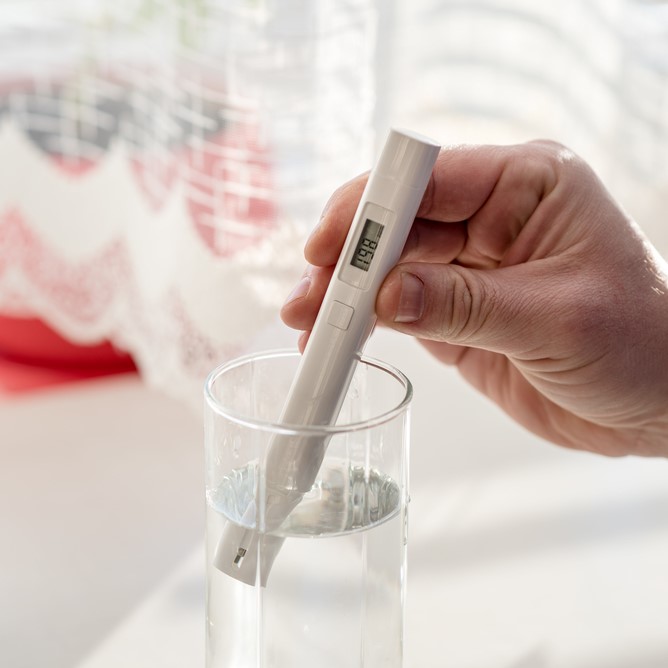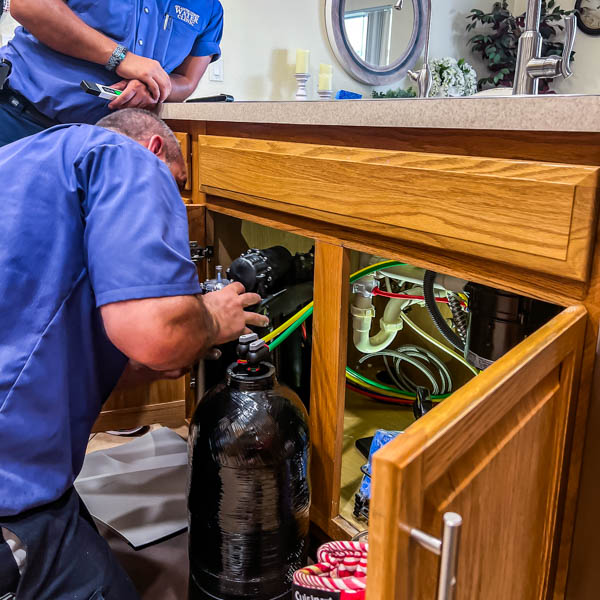Can I Test My Water Quality at Home?
Water is essential to all facets of life. Whether drinking, cooking, bathing, or cleaning, we all will use water daily in some way. Having access to a clean water supply is something that most of us take for granted. However, this isn’t always the case. Unbeknownst to you, unseen contaminants and other dangers could be lurking in it. We often get asked, “Can I test my water quality at home?” Let’s go over this in detail.
 Why Test for Quality?
Why Test for Quality?
We briefly touched on why you may want to test your water in the previous paragraph. Most importantly, testing for unseen contaminants can alert you to any dangers and help protect your family.
In addition, did you recently build a new home? If you have a new well or have replaced parts in your current well, this is a good time to test for water quality as well.
When to Test My Water Quality
The next question to ask is, “When to test my water quality at home?” If you have a concern about quality, then the simple answer is any time. Simply call Atlantic Coast Water Clinic to book your appointment.
However, a more concrete answer would be to check it yearly for nitrates, pH levels, total dissolved solids, and total coliform bacteria. Additionally, if you or a member of your household is pregnant or you have an infant in the home, more frequent testing of your water is a good idea.
And specifically, testing for nitrates is typically best done in the spring or summer after a period of rain.
How to Test Water Quality
If you’re ready to test your water quality at home, you’ll need to order an at-home testing kit. They can be purchased for as little as $20 for the most basic options that give you immediate results. More expensive solutions for around $200 are more advanced and need to be sent to a lab for analysis.
A basic test is as simple as placing a testing strip into a glass of water and then comparing the results to the provided key. With lab testing, they will send you a kit, then you collect the sample according to their specifications, mail it in, and wait for the results to arrive.
 What to Do After I Receive Results?
What to Do After I Receive Results?
So, the next obvious question is, “Now what?” If testing comes back clear, then nothing else is needed. Your water is safe to use.
If contaminants are found, however, there are a few steps you need to take. First, minor issues can be resolved by attaching a water filter to your faucet or under the sink. There are a variety of options on the market today.
A better but more pricey option is to install a reverse osmosis water system. While it will cost more than a filter right at the tap, it will filter more effectively. For the most severe contaminants or those caused by existing water lines or well components, a complete replacement of the pipes and well may be needed.
Public Water Supply
So far, the topic of this blog has pertained to those with private water supplies. But what about homeowners on a public supply service? Most community-provided water services are required to test annually and provide you with a report of their findings. Generally speaking, this means you won’t need to test your water quality at home.
We are happy to help with any and all of your water needs
With over 40 years of experience, our team is happy to help with any of your water needs — including testing your water quality. Schedule your appointment by calling Atlantic Coast Water Clinic at 772-283-4767 or by sending us a short message.


 772-283-4767
772-283-4767